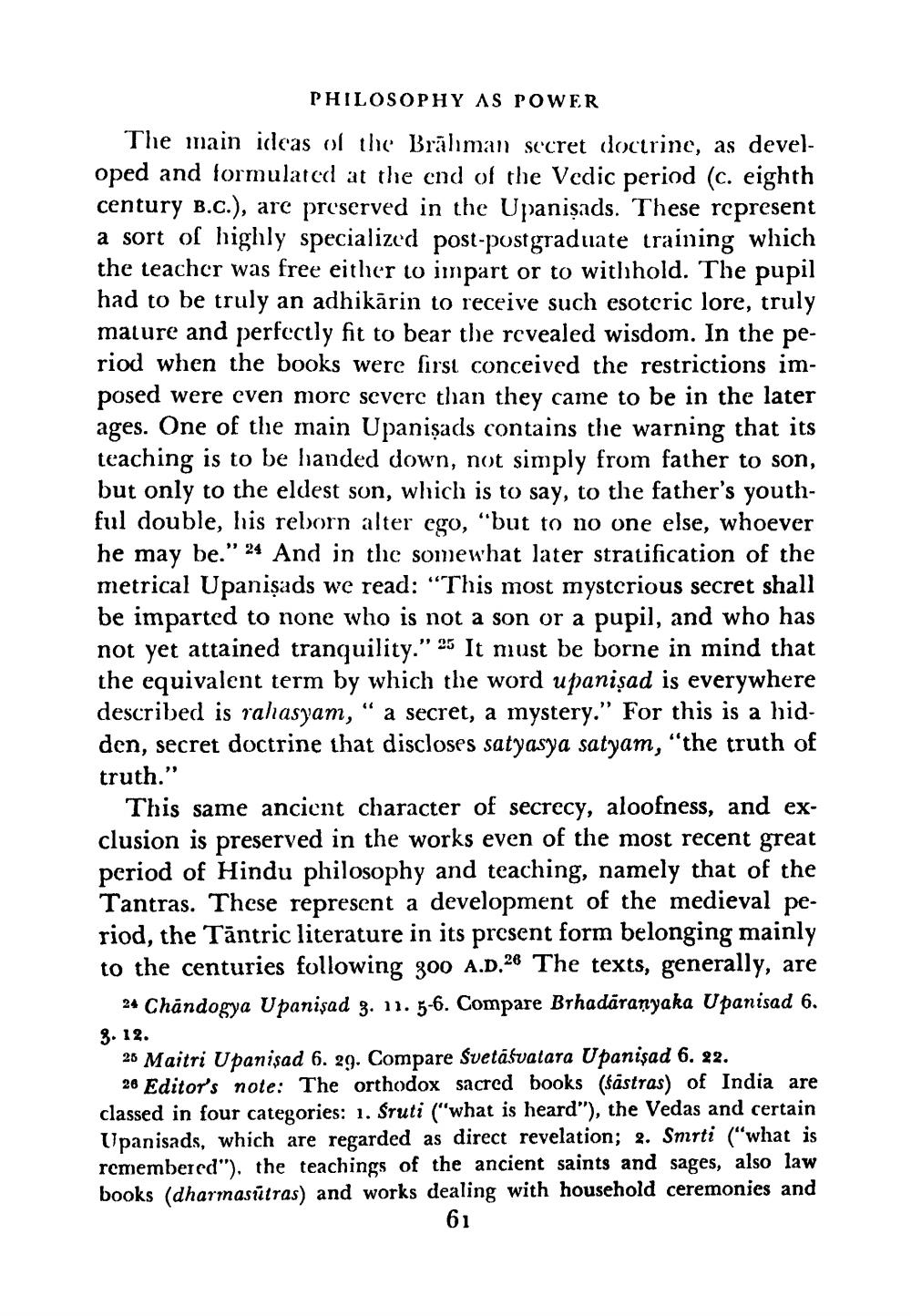________________
PHILOSOPHY AS POWER
The main ideas of the Brāliman secret doctrine, as developed and formulated at the end of the Vedic period (c. eighth century b.c.), are preserved in the Upanişads. These represent a sort of highly specialized post-postgraduate training which the teacher was free either to impart or to withhold. The pupil had to be truly an adhikārin to receive such esoteric lore, truly mature and perfectly fit to bear the revealed wisdom. In the period when the books were first conceived the restrictions imposed were even more severe than they came to be in the later ages. One of the main Upanișads contains the warning that its teaching is to be handed down, not simply from father to son, but only to the eldest son, which is to say, to the father's youthful double, his reborn alter ego, "but to no one else, whoever he may be.” 24 And in the somewhat later stratification of the metrical Upanişads we read: “This most mystcrious secret shall be imparted to none who is not a son or a pupil, and who has not yet attained tranquility.” 25 It must be borne in mind that the equivalent term by which the word upanişad is everywhere described is rahasyam," a secret, a mystery.” For this is a hid. den, secret doctrine that discloses satyasya satyam, "the truth of truth."
This same ancient character of secrecy, aloofness, and exclusion is preserved in the works even of the most recent great period of Hindu philosophy and teaching, namely that of the Tantras. These represent a development of the medieval period, the Tāntric literature in its present form belonging mainly to the centuries following 300 A.D.26 The texts, generally, are
24 Chandogya Upanişad 3. 11. 5-6. Compare Brhadaranyaka Upanisad 6. 3. 12.
26 Maitri Upanişad 6. 29. Compare Svetāśvatara Upanişad 6. 22.
28 Editor's note: The orthodox sacred books (sastras) of India are classed in four categories: 1. Sruti ("what is heard"), the Vedas and certain Upanisads, which are regarded as direct revelation; 2. Smrti ("what is remembered"), the teachings of the ancient saints and sages, also law books (dharmasútras) and works dealing with household ceremonies and
61




